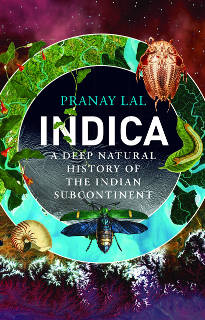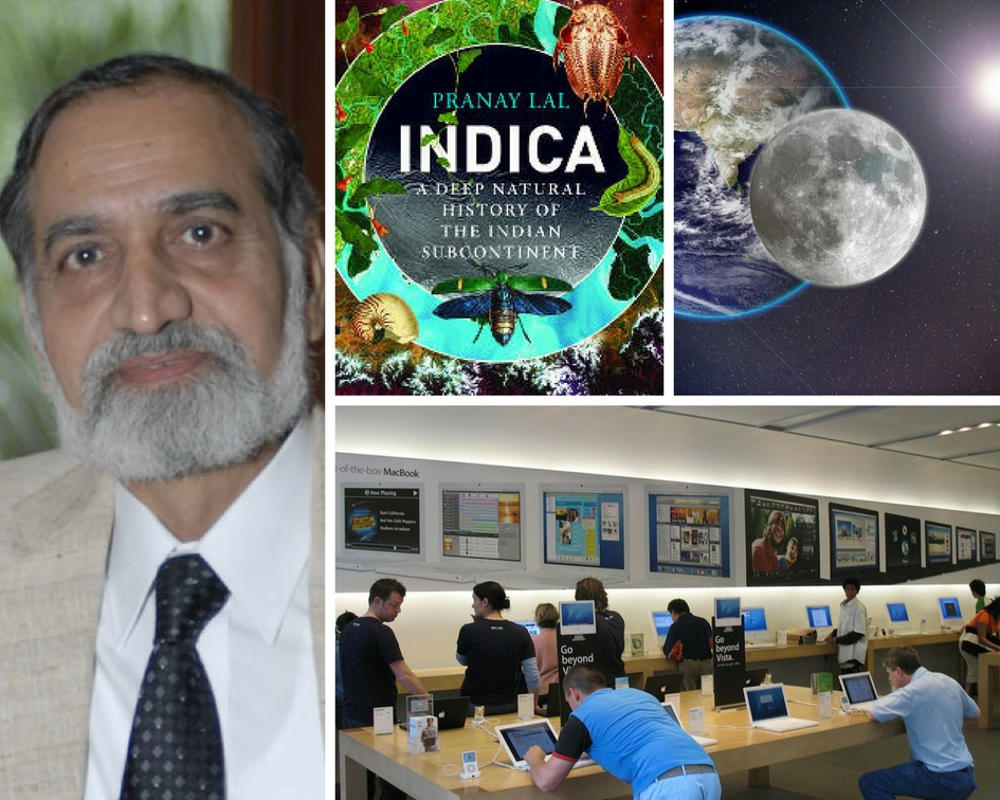[Kiran Karnik's photograph courtesy Mint; Apple Store by TonyTheTiger under Creative Commons]
Dear Friends,
After relentless blasts of election coverage over the last few months, we now have the results. Perhaps there were some surprise results in states like Punjab and Goa. But given the results in the state that mattered most—Uttar Pradesh—the pollsters seem to have predicted the winner. Though they didn’t seem to have expected the wide margin of victory.
What made the Bharatiya Janata Party (BJP) go from an also-ran to a landslide winner? How did they beat the odds of losing to strong and powerful political opponents and get such a huge mandate? The political strategies used are outside the scope of this newsletter to analyse. But I would just offer one explanation for the success—a growth mindset.
A lot has been written about the clinical precision of the BJP election machinery, but the overriding principle seems to have been the leadership’s eagerness to expand by building a strong rallying call among the cadres and by throwing their weight behind a few ideas that would work.
The relevance of these principles to the business world is obvious. What’s with the growth mindset that gets ordinary people, teams and indeed organisations to accomplish extraordinary goals?
I will just dwell on one great piece written by Paul Graham (of Y Combinator fame) in 2012 to explain this point. In an article aptly titled Startup = Growth, he brings this mindset into a sharp focus. He says: “A startup is a company designed to grow fast. Being newly founded does not in itself make a company a startup. Nor is it necessary for a startup to work on technology, or take venture funding, or have some sort of ‘exit’. The only essential thing is growth. Everything else we associate with startups follows from growth.” Among other things, he goes on to explain the difference between Google and a barbershop, a powerful example of what scale and growth mindset is about. I urge you to read the complete article here.
At Founding Fuel, we believe such a mindset starts with having an open mind to learning and staying alive to being inspired from every source. We hope we provide you such inspirations via our newsletter and www.foundingfuel.com.
Like the newsletter? Do share it with your friends and ask them to subscribe to it.
On behalf of team Founding Fuel, I wish you Happy Holi and a great week ahead!
Best,
CS Swaminathan
Featured Stories
Think and design in India. Why make in India?
In this podcast, Kiran Karnik talks about the kind of innovation India needs to leapfrog. He says Make in India is a dated idea. Instead, the focus ought to be on Think in India. The final in a three-part series. (By Charles Assisi. Play Time: 58 mins)
India has a unique opportunity to pioneer a distinct model of affordable healthcare. There are already many outstanding examples of healthcare innovation in the country. (By Rishikesha T Krishnan. Read Time: 4 mins)
This week in disruptive tech—March 7, 2017

A roundup of news and perspective on disruptive technology from around the world. In this issue: Facebook’s algorithm to spot suicidal tendencies, Elon Musk’s moon mission and blockchains. (By NS Ramnath. Read Time: 3 mins)
What has our attention
Indica, by Pranay Lal

If I ask an average Indian what does the word ‘Indica’ mean, I am likely to hear ‘taxi’ or ‘Tata’s car’. In parts of the Western world, the word Indica has other connotations—google it to find out! Well, in the broader sense, Indica is loosely used as a scientific term for natural history (such as living form or geographical features) associated with India. For example, mango is mangifera indica, originally found in India, now, of course, grown all over the world.
My interest in Indian natural history has been a lifelong one. So when I came across a book titled Indica, it immediately spiked my interest. With Amazon Prime, the book was with me the next day, and it’s been a great, unputdownable read.
I was taken aback when I learnt that Nandi Hills near Bengaluru is an evidence of an extremely ancient piece of rock formed perhaps three billion years ago! Called the Dharwar Craton, this is one of the bedrocks on which the south of India rests. Filled with exciting information like this, and with images based on extensive personal research, Pranay Lal, has pulled off a great feat. He traces India’s natural history from the time Earth was formed to the current age.
I would urge every entrepreneur to read it—at least flip through it. You will be awed by the great landmass we inhibit and the grandeur of the creation of Earth itself. It will give a perspective of how humans are but another organism, though endowed with great powers to both protect it as well as destroy it. I hope this book eggs us to take actions to do the former.
I don’t have space to review the complete book here, but here is a good one for you to consider: Book review: Indica—A Deep Natural History Of The Indian Subcontinent
If you are interested, you can buy the book here.
Scaling Companies… and Culture
Culture is so critical to the success of organisations but getting it right is very hard. I often find it hard to explain what is good culture, but I will go with the popular quote from Justice Stewart: “I know it when I see it.” Well not quite! Here is a great conversation with the founder of SuccessFactors, Lars Dalgaard, and Ben Horowitz of A16Z on what it takes to grow a business and build a culture that supports the vision. Dalgaard says: “Something begins to happen when you’re together with people, and it’s like a sports team. You just have to do it together and you’re excited and you look forward to coming back and doing that thing, you’re all together.” Hope you like it.
Must Reads from Our Archives on Growth Hacking

[By TonyTheTiger under Creative Commons]
Growth hacking is the new way, where companies craft the product in way that encourage users to evangelize the product (By Pankaj Tibrewal. Read Time: 4 mins)
Develop a Growth Hacker's mindset
How to attract users without having to shell out money on traditional marketing activities. (By Rajesh Srivastava. Read Time: 4 mins)
Because you fail to focus on converting visitors to heavy users. (By Haresh Chawla. Read Time: 10 mins)



